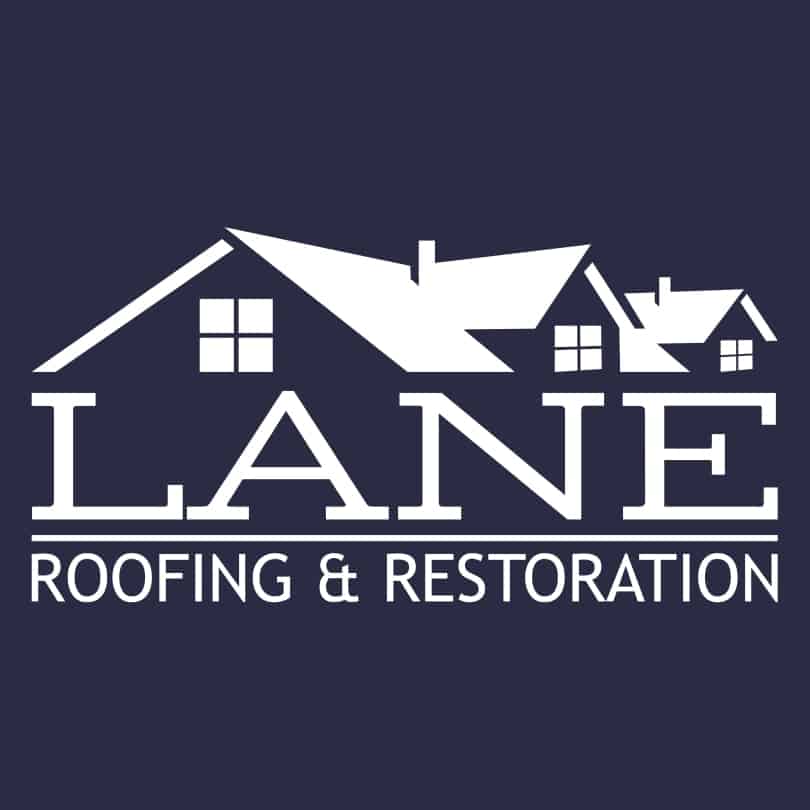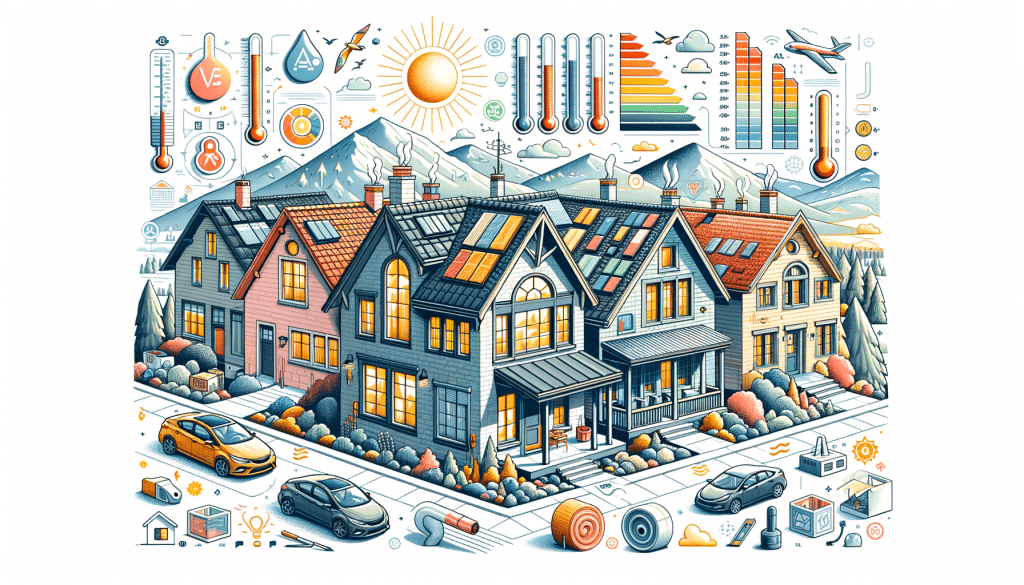When it comes to home energy efficiency in Western North Carolina, your roof plays a far more significant role than you might realize. As we help Asheville homeowners navigate their roofing options at Lane Roofing and Restoration, we’ve seen firsthand how the right roof can dramatically impact monthly utility bills and indoor comfort.
Here in the Blue Ridge Mountains, where we experience four distinct seasons with cold, snowy winters and warm, humid summers, energy-efficient roofing isn’t just a luxury—it’s practically a necessity. Walking the neighborhoods from Montford to West Asheville, I’ve observed how homes with energy-efficient roofing withstand our local climate challenges while keeping homeowners comfortable and saving them money all year long.
How Your Roof Affects Energy Consumption in Asheville Homes
Most Asheville homeowners don’t realize that up to 30% of their heating and cooling energy can escape through their roof. That’s a substantial portion of your monthly utility bill literally disappearing into thin air. Your roof serves as your home’s first line of defense against our region’s temperature extremes.
During summer, when temperatures climb into the 80s and 90s, traditional dark-colored roofing absorbs heat, turning your attic into an oven that radiates warmth throughout your home. In winter, when mountain temperatures drop below freezing, inadequate roofing allows precious heat to escape upward, forcing your heating system to work overtime.
Many local homeowners we’ve worked with were surprised to learn that their older roofing was actually responsible for those stubbornly high energy bills they’d been battling for years.
The Impact of Roofing Materials on Energy Efficiency
Not all roofing materials perform equally when it comes to energy efficiency. Here’s how common options stack up in our Asheville climate:
Asphalt Shingles
Standard asphalt shingles, while cost-effective and popular throughout Asheville neighborhoods, traditionally haven’t been known for energy efficiency. However, newer “cool roof” asphalt shingles with reflective granules can reflect more sunlight and absorb less heat than traditional options, improving energy performance by 20-30% during hot weather.
For Asheville homes with asphalt shingles, choosing lighter colors particularly helps with summer cooling costs. I’ve seen many local homeowners opt for architectural shingles in lighter gray or tan tones that complement mountain aesthetics while providing better reflection.
Metal Roofing
Metal roofing has gained tremendous popularity in Asheville, and for good reason. Energy-efficient metal roofs can reflect up to 70% of the sun’s rays rather than absorbing them. This reflectivity can reduce cooling costs by 10-25% during our humid summers.
Metal roofs also offer excellent insulation during winter months, preventing heat loss and creating a more consistent indoor temperature. For homeowners in areas like Black Mountain or higher elevations with substantial snowfall, metal’s slippery surface allows snow to slide off more easily, preventing ice dams that can damage your roof and compromise energy efficiency.
Tile and Slate
While less common in our area, tile and slate roofing provide natural insulation properties. Their thickness and density create a natural barrier against heat transfer. For historic homes in neighborhoods like Montford, slate can be both authentic to the architecture and highly energy efficient.
Roof Color and Energy Efficiency: What Asheville Homeowners Should Know
In the roofing world, color matters tremendously for energy performance. Darker roofs absorb more heat (up to 90% of the sun’s radiant energy), while lighter colors reflect more light and heat away from your home.
For Asheville’s varied climate, the ideal approach often depends on your home’s specific situation. Homes with excellent insulation and more shade coverage might benefit from darker roofing to help with winter heating. Meanwhile, more sun-exposed properties typically see greater benefits from lighter colors that minimize summer heat gain.
We’ve installed “cool roofs” with special pigments that reflect sunlight even in darker colors, offering Asheville homeowners both aesthetic flexibility and energy performance. These specialized materials can stay 50-60 degrees cooler than traditional roofing on hot summer days, dramatically reducing cooling demands.
Ventilation and Insulation: The Hidden Energy Heroes
While roofing material and color get most of the attention, proper attic ventilation and insulation are equally crucial for energy efficiency. Without them, even the most energy-efficient roofing won’t perform to its potential.
Ventilation
Proper attic ventilation creates a continuous airflow that helps regulate temperature and moisture levels. In Asheville’s humid climate, this ventilation prevents moisture buildup that can lead to mold, mildew, and wood rot while also helping maintain consistent temperatures.
Ridge vents, soffit vents, and gable vents all play important roles in creating this airflow. During our roof inspections, we often discover that homes with high energy bills have inadequate ventilation that’s easy to correct during a roof replacement or update.
Insulation
Insulation works hand-in-hand with your roof to maintain energy efficiency. Here in Climate Zone 4, the Department of Energy recommends R-38 to R-60 insulation levels in attics. Unfortunately, many older Asheville homes fall well below these standards.
Upgrading insulation during a roofing project can maximize energy benefits. We’ve seen homeowners reduce their heating and cooling costs by 15-20% simply by bringing their insulation up to recommended levels when installing a new roof.
Radiant Barriers: Extra Protection for Asheville’s Climate
For enhanced energy performance, some Asheville homeowners opt to include radiant barriers as part of their roofing system. These reflective materials, usually aluminum foil laminated to construction materials, reflect radiant heat rather than absorbing it.
When installed properly in attic spaces, radiant barriers can reduce summer heat gain by 25% or more. They’re particularly effective in our region’s hot summers and can help ease the strain on air conditioning systems during July and August heat waves.
While they add some cost to a roofing project, the energy savings can quickly offset the initial investment, especially for homes with limited shade or southern exposures.
The Real-World Energy Impact for Asheville Homeowners
The numbers tell the story when it comes to energy-efficient roofing. Based on our experience with local projects:
Most Asheville homeowners see a 10-30% reduction in cooling costs after upgrading to energy-efficient roofing systems. For an average home, this can translate to $20-60 monthly savings during summer months.
Winter heating improvements typically range from 5-15% with proper insulation and an energy-efficient roof system. For homes using propane or electric heat common in our area, these savings add up quickly.
Beyond the pure dollar savings, homeowners consistently report more comfortable indoor temperatures and fewer hot/cold spots throughout their homes after energy-efficient roof installations.
Energy-Efficient Roofing and Home Value in Asheville
Asheville’s real estate market increasingly values energy efficiency. Homes with documented energy-efficient features, including roofing, typically command higher prices and sell faster than comparable properties without these upgrades.
Local real estate professionals we partner with estimate that energy-efficient roofing can add 1-3% to a home’s value in our market. For the median Asheville home price, that’s a potential $4,000-12,000 increase in value.
Additionally, energy-efficient roofing often becomes a strong selling point in listings, helping homes stand out in our competitive market where environmentally conscious buyers place high value on efficiency features.
Available Incentives for Energy-Efficient Roofing
Asheville homeowners should be aware of potential financial incentives that can help offset the costs of energy-efficient roofing:
Federal tax credits may be available for certain ENERGY STAR-certified roof products, potentially covering a percentage of material costs. These credits have been extended through recent legislation.
Local utility companies occasionally offer rebates or incentives for energy-efficient home improvements, including qualifying roofing projects that reduce energy consumption.
Some insurance companies offer reduced premiums for impact-resistant, energy-efficient roofing materials, providing another source of ongoing savings.
Making the Right Energy-Efficient Roofing Choice for Your Asheville Home
When helping homeowners select energy-efficient roofing, we consider several factors specific to their property:
Home orientation and sun exposure play key roles in determining optimal materials and colors. South-facing roof sections with full sun exposure benefit most from reflective materials.
Tree coverage and natural shading affect energy performance significantly. Homes with minimal shade require more emphasis on reflective and insulating roofing qualities.
Architectural style and neighborhood aesthetics must be balanced with energy goals. Fortunately, today’s energy-efficient options come in styles suitable for everything from century-old Montford bungalows to modern River Arts District homes.
Budget considerations always matter, but we help homeowners understand the return on investment timeline for various options. Often, a slightly higher initial investment yields substantially better long-term energy performance and cost savings.
Looking Forward: The Future of Energy-Efficient Roofing
The roofing industry continues to innovate in energy efficiency, with exciting developments on the horizon. Solar-integrated roofing, though still gaining traction in our area, offers promising energy generation capabilities alongside traditional roofing functions.
Advanced cooling technologies and increasingly efficient materials continue to enter the market each year, pushing the boundaries of what’s possible for energy conservation through roofing.
As Asheville continues its commitment to sustainability and climate action goals, we anticipate further incentives and programs supporting energy-efficient roofing options for homeowners throughout Western North Carolina. Homeowners are encouraged to stay informed about available resources, as these programs not only provide financial assistance but also help in enhancing the overall energy efficiency of homes. Additionally, summer roof protection tips will be crucial during the hotter months, guiding residents on how to maintain their roofs and maximize their lifespan. Engaging with local experts can also help homeowners make informed decisions about the best roofing materials suited for our region’s climate.
Whether you’re building new or replacing an aging roof, the energy efficiency of your roofing system deserves careful consideration. The right choice can pay dividends in comfort, cost savings, and environmental impact for decades to come.
If you’re curious about how energy-efficient roofing might benefit your specific Asheville home, we’re always happy to provide a no-obligation assessment. After all, your roof should do more than just keep the rain out—it should help keep your energy costs down too.

